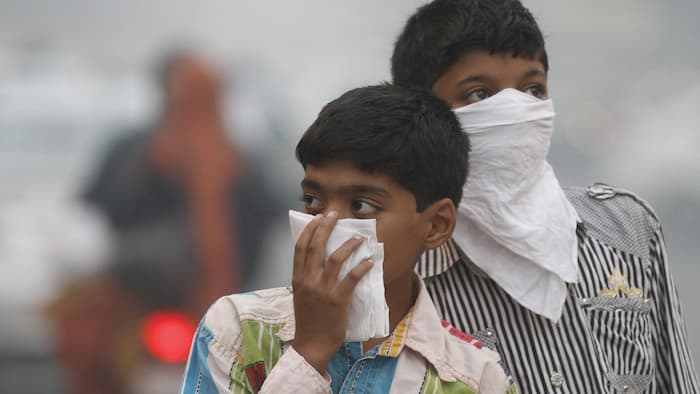Almost One In Seven Children Breathing Heavily Toxic Air

NEW DELHI: About 300 million children in the world are living in areas with outdoor air so toxic – six or more times higher than international pollution guidelines – that it can cause serious health damage, including harming their developing brains, a new United Nations Children's Fund (UNICEF) report has revealed.
“Pollutants don't only harm children's developing lungs – they can actually cross the blood-brain barrier and permanently damage their developing brains – and, thus, their futures,” said UNICEF's Executive Director Anthony Lake in a news release today announcing the agency's new report 'Clear the air for children.'
“Air pollution is a major contributing factor in the deaths of around 600,000 children under five every year – and it threatens the lives and futures of millions more every day,” he added. “No society can afford to ignore air pollution.”
These findings come a week ahead of the 22nd Conference of the Parties (COP 22) to the UN Framework Convention on Climate Change (UNFCCC) in Marrakesh, Morocco, where UNICEF is calling on world leaders to take urgent action to cut air pollution in their countries.
Using satellite imagery, the report further shows that around two billion children live in areas where outdoor air pollution, caused by factors such as vehicle emissions, heavy use of fossil fuels, dust and burning of waste, exceeds minimum air quality guidelines set by the World Health Organization (WHO).
South Asia has the largest number of children living in these areas, at 620 million, with Africa following with 520 million children, and the East Asia and Pacific region with 450 million children living in areas that exceed guideline limits.
Source: UNICEF Children more susceptible to air pollution than adults
In the news release, UNICEF further stressed that children are more susceptible than adults to both indoor and outdoor air pollution as their lungs, brains and immune systems are still developing and their respiratory tracks are more permeable.
It added that young children also breathe faster than adults, and take in more air relative to their body weight.
In particular, the most disadvantaged, who already tend to have poorer health and inadequate access to health services, are the most vulnerable to the illnesses caused by polluted air.
The UNICEF report also examines the impact of indoor pollution, commonly caused by the use of fuels like coal and wood for cooking and heating, which mostly affects children in low-income, rural areas.
“Together, outdoor and indoor air pollution are directly linked to pneumonia and other respiratory diseases that account for almost one in 10 under-five deaths, making air pollution one of the leading dangers to children's health,” noted the news release.
UNICEF further added that it is asking world leaders attending COP 22 to take four urgent steps in their countries to protect children from air pollution, these include: reducing pollution to meet WHO global air quality guidelines; increasing children's access to healthcare; minimizing children's exposure to sources of pollution such as by locating sources of pollution such as factories away from schools and playgrounds as well as by use of cleaner cookstoves; and monitoring air pollution.
Underscoring that children are protected when the quality of the air that everyone breathes is protected, UNICEF's Executive Director Lake added: “Both are central to our future.”



